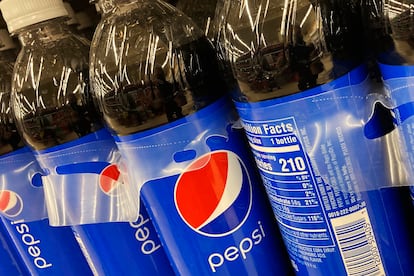New York sues PepsiCo Inc. for plastic pollution, alleging the company contaminated drinking water
The company’s single-use plastic packaging including food wrappers and plastic bottles have found a way to the shores of the Buffalo River and watershed, contaminating drinking water supply for the city of Buffalo

New York Attorney General Letitia James announced a lawsuit against PepsiCo Inc. on Wednesday, accusing the soda-and-snack food giant of polluting the environment and endangering public health after its single-use plastics were found along the Buffalo River.
The lawsuit filed in state Supreme Court aims to require PepsiCo and its subsidiaries, Frito-Lay Inc. and Frito-Lay North America Inc., to clean up its mess, where its single-use plastic packaging including food wrappers and plastic bottles have found a way to the shores of the Buffalo River and watershed, contaminating drinking water supply for the city of Buffalo.
“No company is too big to ensure that their products do not damage our environment and public health. All New Yorkers have a basic right to clean water, yet PepsiCo’s irresponsible packaging and marketing endanger Buffalo’s water supply, environment, and public health,” James said in a statement.
PepsiCo is the single largest identifiable contributor to the plastic waste contaminating the Buffalo River, according to the lawsuit. Of the 1,916 pieces of plastic waste containing an identifiable brand, 17.1% were produced by PepsiCo, according to a 2022 survey conducted by the state Office of the Attorney General.
Microplastics have also been found in fish species that are known to inhabit Lake Erie and the Buffalo River, as well as Buffalo’s drinking water supply, according to the lawsuit. Exposure to those chemicals can carry a wide range of adverse health effects.
The Buffalo River was once considered one of the most polluted rivers in the United States until the state’s Department of Environmental Conservation stepped in with a remedial action plan in 1989 to restore the river’s ecosystem.
“Our Buffalo community fought for over 50 years to secure hundreds of millions of dollars to clean up toxic pollution, improve habitat, and restore communities around the Buffalo River,” said Jill Jedlicka, executive director of Buffalo Niagara Waterkeeper, in a statement. “We will not sit idly by as our waterways become polluted again, this time from ever-growing single-use plastic pollution.”
Through the lawsuit, James is also calling for PepsiCo to stop selling or distributing any product in the Buffalo region without warning consumers about the potential health and environmental risks of its packaging. It also seeks to stop the company from contributing to the public nuisance it is causing in the Buffalo region by contributing to plastic pollution, and to develop a plan to reduce the amount of its single-use plastics from entering the Buffalo River.
PepsiCo, which is headquartered in New York, produces and packages at least 85 different beverage brands including Gatorade and Pepsi products, and at least 25 snack food brands that mostly come in single-use plastic containers.
In past years, the company has repeatedly pledged that it would make meaningful strides to reduce its use of plastics. The lawsuit alleges that the opposite is happening, and that PepsiCo misled the public about its efforts to combat plastic pollution.
Email messages left for a spokesperson at PepsiCo were not immediately returned. The lawsuit also seeks disgorgement, civil penalties, and restitution.
Sign up for our weekly newsletter to get more English-language news coverage from EL PAÍS USA Edition
Tu suscripción se está usando en otro dispositivo
¿Quieres añadir otro usuario a tu suscripción?
Si continúas leyendo en este dispositivo, no se podrá leer en el otro.
FlechaTu suscripción se está usando en otro dispositivo y solo puedes acceder a EL PAÍS desde un dispositivo a la vez.
Si quieres compartir tu cuenta, cambia tu suscripción a la modalidad Premium, así podrás añadir otro usuario. Cada uno accederá con su propia cuenta de email, lo que os permitirá personalizar vuestra experiencia en EL PAÍS.
¿Tienes una suscripción de empresa? Accede aquí para contratar más cuentas.
En el caso de no saber quién está usando tu cuenta, te recomendamos cambiar tu contraseña aquí.
Si decides continuar compartiendo tu cuenta, este mensaje se mostrará en tu dispositivo y en el de la otra persona que está usando tu cuenta de forma indefinida, afectando a tu experiencia de lectura. Puedes consultar aquí los términos y condiciones de la suscripción digital.








































